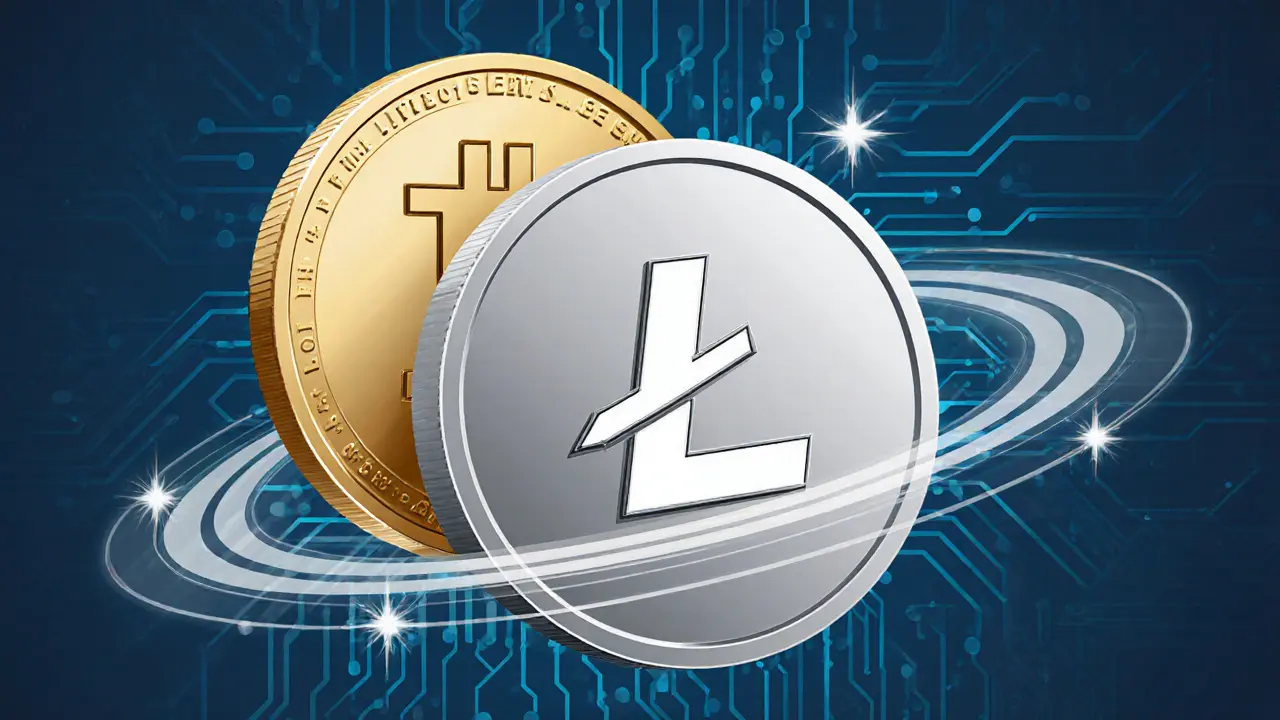Litecoin (LTC) – Fast, Low‑Cost Crypto Overview
When working with Litecoin, a fast, low‑fee cryptocurrency that aims to be the silver to Bitcoin’s gold. Also known as LTC, it supports quicker block times and lower transaction costs, which helps everyday buyers and sellers. Litecoin encompasses blockchain technology, so each transaction is recorded on a public ledger that anyone can verify. This makes it both transparent and secure. The developer community regularly upgrades the protocol, adding features like SegWit and the Lightning Network to keep Litecoin competitive. If you’re hunting for reliable Litecoin analysis, you’re in the right spot.
Like Bitcoin, the first cryptocurrency created in 2009, Litecoin shares the same decentralized ethos but improves on speed. While Bitcoin averages ten minutes per block, Litecoin drops that to 2.5 minutes, letting users confirm payments faster. This speed difference is a key reason many merchants accept Litecoin alongside Bitcoin. Litecoin requires a blockchain network to secure transactions, just as Bitcoin does, but its lighter algorithm lowers the entry barrier for miners. Because of its lower fees, many users also use Litecoin for cross‑border remittances where Bitcoin costs can be prohibitive.
Regulatory landscapes shape how Litecoin can be used around the world. Cryptocurrency regulation, government rules that define tax, licensing, and legal status for digital assets influences everything from exchange listings to tax reporting. In countries with clear tax guidance, you’ll see more Litecoin wallets and trading volume. When regulators clamp down, liquidity can dry up fast, pushing users toward peer‑to‑peer trades. Understanding the latest rules helps you stay compliant and avoid surprises. Recent guidance from the EU's MiCA framework classifies Litecoin as a "crypto‑asset", which means licensed providers can offer custody services across member states.
Public markets bring Litecoin to traders. Crypto exchanges, online platforms where you can buy, sell, and store digital currencies vary in fees, security, and regional access. Some exchanges focus on Bitcoin and Litecoin pairs, offering low‑cost swaps, while others bundle dozens of altcoins. Checking an exchange’s licensing, withdrawal limits, and security features before you deposit LTC can save you headaches later. Exchange reviews often highlight how quickly they process Litecoin deposits, which matters if you need fast liquidity. Liquidity metrics such as order‑book depth and average spread are useful checkpoints before you commit large LTC amounts.
Beyond trading, Litecoin sometimes appears in promotional campaigns. Airdrops, free token distributions used to boost awareness and community growth can include small LTC amounts or related tokens that reward holders. Tokenomics—a coin’s supply rules, inflation rate, and reward structure—determine long‑term value. Litecoin’s capped supply of 84 million coins mirrors Bitcoin’s scarcity model, which many investors view as a hedge against inflation. Knowing these mechanics helps you evaluate whether a new airdrop or token aligns with your portfolio goals. When an airdrop promises high returns, always check the token’s distribution schedule to avoid hidden inflation that could erode value.
Below you’ll find a curated set of articles that dive deep into the topics we just covered. From the latest Indian crypto tax guide and VPN trading tips in Iran to hands‑on reviews of 3XBIT, Koinde, and Bitroom exchanges, each piece gives practical steps you can apply today. Whether you’re checking how regulation impacts Litecoin in your jurisdiction or hunting for the best low‑fee platform to move LTC, the collection below offers clear, actionable insight. Let’s explore the resources that can sharpen your Litecoin strategy.

Litecoin (LTC) Explained: What It Is, How It Works & Future Outlook
Oct 12, 2025, Posted by Ronan Caverly
Litecoin (LTC) is a fast, low‑fee cryptocurrency created by Charlie Lee. Learn its tech, market status in 2025, MWEB privacy upgrade, and future outlook.
MORESEARCH HERE
Categories
TAGS
- decentralized exchange
- crypto exchange
- crypto exchange review
- crypto coin
- crypto airdrop
- cryptocurrency
- CoinMarketCap airdrop
- cryptocurrency trading
- smart contracts
- tokenomics
- DeFi
- cryptocurrency exchange safety
- crypto airdrop 2025
- cryptocurrency airdrop
- cryptocurrency exchange
- MiCA
- crypto airdrop guide
- blockchain token distribution
- crypto token
- Portugal crypto tax
